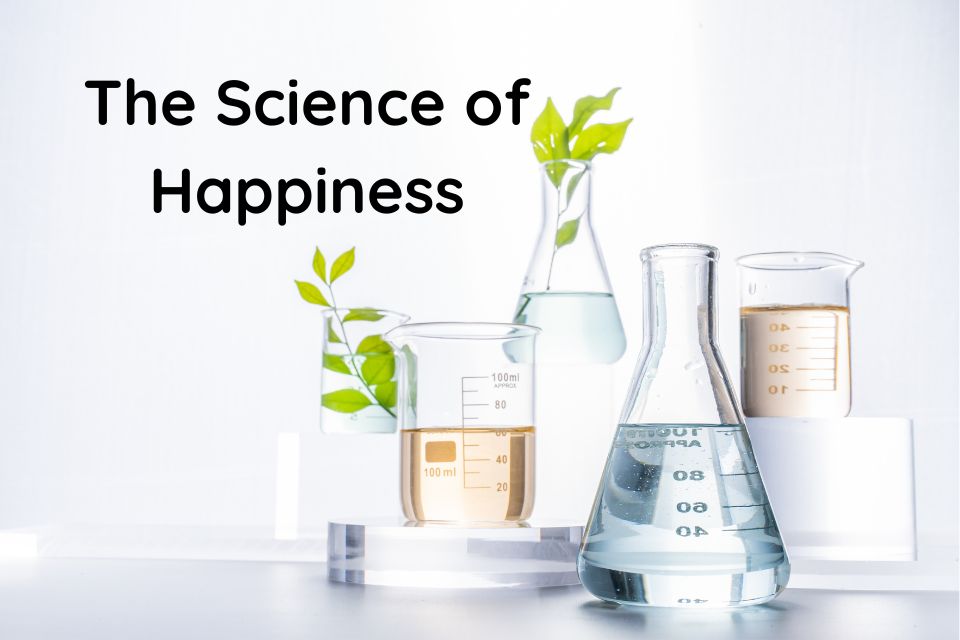When we think about happiness and what makes us happy, we often think of the big things. Big milestones like buying our first or dream home, being offered that perfect job, finding true love, growing our family or even taking that long awaited trip of a lifetime. While all of those can be wonderful, happiness researchers have discovered that, while we get a temporary boost of happiness from them, it doesn’t last and they don’t provide the long-term boost that we might expect.
The findings? Science has discovered that happiness is not created in huge life upgrades but built up in the sometimes “boring”, day to day habits that we tend to take for granted.
Let’s take a look at what the researchers now know – and what we often forget.
Sleep: The Unsung Hero of Happiness
We all know that sleep is important, but science has confirmed that people who consistently get between 7 – 9 hours of good-quality sleep each night report higher happiness scores. In addition they have greater emotional stability and resilience when life gets stressful.
When we don’t get enough sleep it doesn’t just make us tired – it can make us cranky and rob us of our ability to focus on tasks or even gain enjoyment from life. One study identified that sleep deprived participants experienced less positive emotions and were less likely to notice positive events happening around them.
🌞 Key insights? Making sure we get enough sleep is one of the easiest and most powerful ways we can boost our day to day happiness.
Friendships: Our Natural Antidepressant
It can be easy to focus on our own individual success and get caught up doing that. But, multiple studies conclude that strong social connections are the single biggest predictor of long-term happiness.
The Harvard Study of Adult Development – a well known study that has now been running for over 80 years following individuals over their lifetimes – found that good relationships, more than money or fame, account for better health and happiness overall. And recently loneliness has been found to be as damaging to our health as smoking up to 15 cigarettes a day!
🌞 Key Insights? Stay connected. Call a friend. Plan a meet-up with someone you care about who you haven’t seen in a while. Schedule a date night or fun activity with a loved one. Nurturing your relationships can be a key investment toward your happiness bank.
Kindness: The Unexpected Happiness Booster
There is a myth that spending money on yourself and the things you want makes you happier than giving it away. Science has discovered that the opposite is actually true.
Scientific studies have proven that acts of generosity and kindness make us happier and for longer afterwards. Results were tracked for giving donations to charity, helping a friend or neighbour, or even offering compliments to both friends and strangers and it was found that these acts of kindness significantly increase our happiness levels. Giving triggers the release of the “feel-good” chemicals like oxytocin and dopamine and this creates a warm glow for us that lasts long after the act itself.
🌞 Key insights? Kindness and generosity is a two-way street. It benefits the giver as much as the receiver.
Gratitude: Training Your Brain to Notice the Good
Gratitude has long been studied and it is a known and reliable way to consistently boost happiness. In fact, I’ve written about it before. Click here to read more about creating a gratitude practice.
Humans have been hard wired to notice and focus on potential threats in our environment. It has served us well in evolutionary terms. But, in today’s safer world, it can keep us stuck in negative cycles.
Research has shown that regularly practicing gratitude and appreciation can rewire the brain to notice more of what is going well for us instead of obsessing over what’s wrong.
In a famous study by Seligman and colleagues (2005), participants were asked to write down three things they were grateful for each day. These people reported greater levels of happiness and lower levels of stress in just a few weeks.
Practicing gratitude has also been linked to better sleep, stronger relationships and improved physical health.
🌞 Key insights? Practicing gratitude isn’t about pretending that life is perfect. It’s about teaching your brain to pay attention to the small, positive things that are already present in our lives.
Movement: The Mood Shifter
Exercise has long been celebrated for having a profound impact on our mental well being as well as our physical health. Research has shown that even light activity – like walking, stretching, gardening and even housework – can reduce stress and provide a mood boost.
A study published in the Journal of Psychology of Sport and Exercise found that even as little as 10 minutes of brisk walking could improve the mood for up to two hours afterwards. That is an excellent return on investment.
🌞 Key insights? You don’t need to sign up for a marathon or even a gym membership. Just move your body in ways you enjoy each day to reap the benefits and feel happier.
Why We Forget the Basics
So why do we keep chasing happiness in the big flashy stuff — the new car, the perfect house, the dream holiday? Because those things give us a quick hit of joy and excitement. They’re shiny, Instagram-worthy, and they feel good… for a while.
Even so, it doesn’t take long though for our mood to return to its former base line. Almost as if the quick boost had never happened.
But the science reminds us of something we already know deep down: lasting happiness comes from consistency, not quick fixes. It’s about sleep, connection, kindness, and movement — and being grateful for the everyday pleasures.
The Bottom Line
The science of happiness isn’t complicated. It’s not hidden in secret formulas or available only to the lucky few. It’s in the choices we make every day — how we rest, who we connect with, how we move, and how we give and what we appreciate.
Happiness doesn’t have to be extraordinary. It grows in the ordinary.
Over to you:
Which of these “boring” happiness boosters do you want to focus on this week — starting a gratitude practice, better sleep, stronger connections, more kindness, or simple movement? Drop your answer in the comments below or email me directly.
This post is part of my Slow Living & Presence series.
👉 Read the main guide: The Joy of Slow Living in a Fast World
Explore more in the series:


